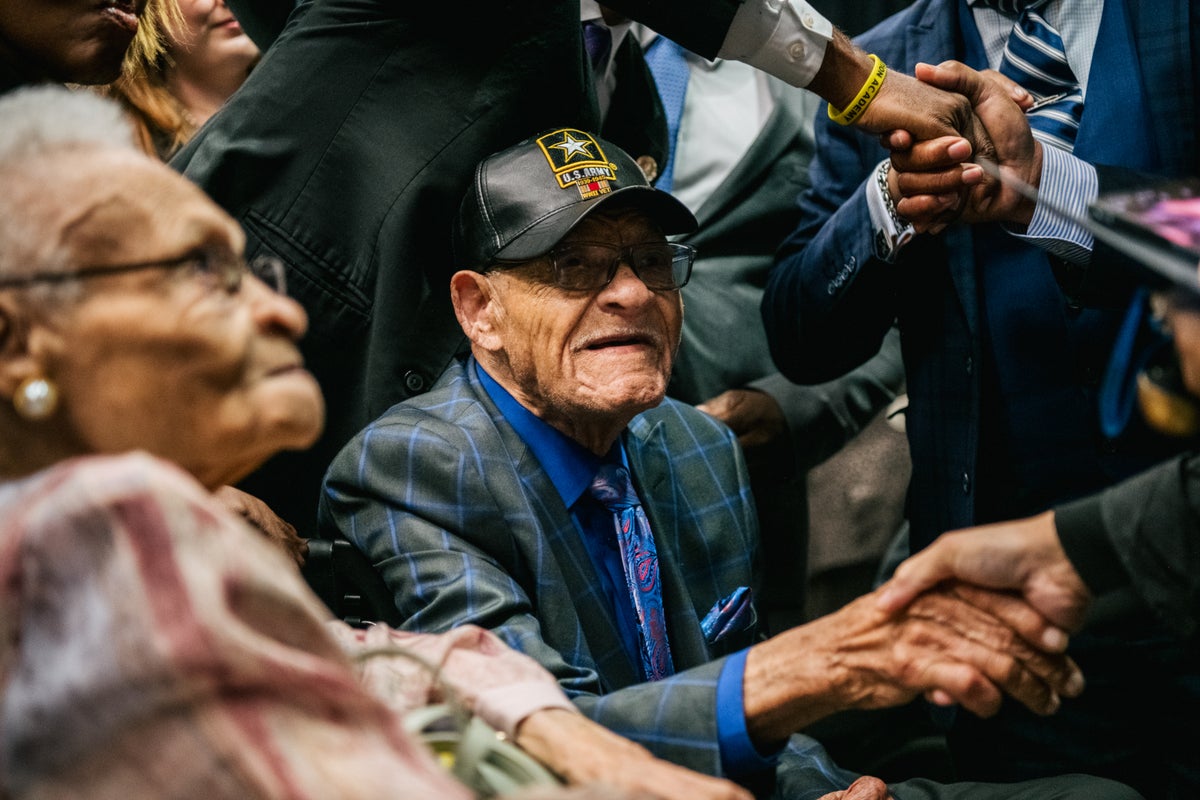
Hughes Van Ellis, among the last three known survivors of the Tulsa race massacre of 1921, and who remained in a years-long legal battle for justice in the long violent shadow of the attack, has died. He was 102.
Ellis was not yet one year old when a white mob launched one the bloodiest episodes of racist violence in the 20th century, one in which no one has ever been criminally charged.
He died at a veterans’ facility in Denver, Colorado, on 9 October, according to a statement from his family.
In the late hours of 31 May 1921, in Tulsa’s thriving “Black Wall Street” of Greenwood, an armed white mob fired indiscriminately on Black Americans in the street. Planes dropped flaming turpentine-soaked rags and dynamite. Witness accounts reported the bodies of Black victims thrown into the Arkansas River or into mass graves. Survivors were rounded up at gunpoint and detained in internment camps.
Ellis joined two other last-known survivors – his sister Viola Fletcher and Lessie Benningfield Randle – in a lawsuit to call for justice for the families and communities living in the decades-long aftermath of the attack. Earlier this year, a judge dismissed the case. The state Supreme Court said it would hear an appeal, but it remains unclear whether the court will take up the case.
In his testimony to members of Congress 100 years after the attack, Ellis, a veteran of World War II, broke into tears as he told lawmakers that he fought for his country overseas but had not yet received justice at home.
“Please do not let me leave this earth without justice, like all the other massacre survivors,” he said at the time.
Hughes Van Ellis, centre, appears at a memorial event commemorating the 100th anniversary of the Tulsa race massacre on 1 June, 2021 in Tulsa, Oklahoma.— (Getty Images)
He explained that the plaintiffs brought the case because they were taught “that when something is stolen from you, you go through the courts to be made whole ... to get justice.”
“This wasn’t the case for us,” he said. “We were made to feel that our struggle was unworthy of justice, that we were less valued than whites, that we weren’t fully Americans, that we were shown in the US that all men aren’t unequal under the law … we were shown that when Black voices call out for justice, no one hears.”
Ellis, known as “Uncle Red”, had “bravely served America, even as he spent a lifetime awaiting atonement related to the Tulsa race massacre,” according to a statement from state Rep Regina Goodwin, who shared a statement announcing his death on behalf of his family.
“In the midst of his death, there remains an undying sense of right and wrong,” she said. “Mr Ellis was assured we would remain steadfast and we repeated to him, his own words, ‘We Are One’ and we lastly expressed our love.”






